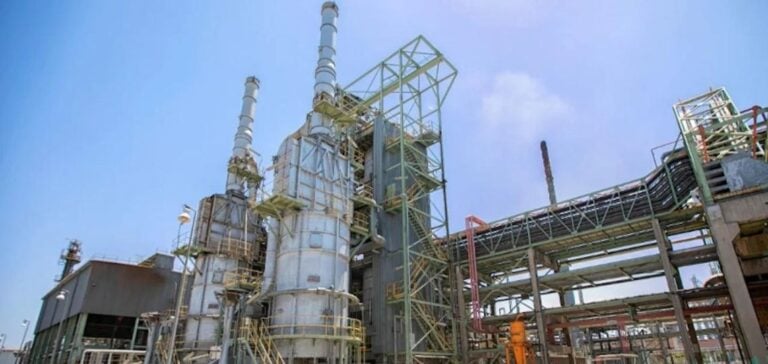Uzbekistan, through its refiner Saneg, has initiated the refining of crude oil from Afghanistan, marked by the launch of the first cargo transported by rail from the Hairatan terminal.
This development takes place against the backdrop of an acute energy crisis in Afghanistan, amplified by supply difficulties, notably from Iran and Turkmenistan.
The Taliban government, without formal international recognition since 2021, is seeking to restart local oil production in order to reduce its dependence on fuel imports.
A Partnership with Many Stakes
Saneg agrees to process Afghan crude at the Fergana refinery, a facility designed in Soviet times to handle various types of crude oil, including that with a high sulfur content.
Afghan crude, mainly extracted from blocks in the Amou-Daria basin, is an under-exploited resource due to the lack of refining infrastructure on Afghan soil.
By processing this crude, Uzbekistan not only strengthens its domestic diesel production capacity, but also offers the Afghan authorities a temporary solution to their energy crisis.
The refining agreement represents one of the first cross-border collaborations for Afghan crude oil, despite the historically complex relations between the two countries.
In the absence of official recognition of the Taliban by the international community, these energy cooperation initiatives testify to the Kabul government’s attempt at regional reintegration.
Technical and strategic challenges
The project presents technical challenges related to crude quality and refining capacity.
The high sulfur content of Afghan crude requires adjustments to the treatment process at the Fergana refinery.
In addition, economic sanctions against Afghanistan complicate the implementation and sustainability of this agreement.
Nevertheless, for Uzbekistan, the processing of this crude offers an opportunity to diversify its energy supply and strengthen its exports.
Other countries in the region, notably Russia and Kazakhstan, are exploring similar options to secure market share while indirectly supporting the Afghan economy.
This dynamic reflects the geopolitical repositioning efforts of Central Asian countries in the face of Afghanistan’s isolation on the international stage.
Regional implications and future developments
Saneg’s initiative to process Afghan crude is part of Uzbekistan’s wider strategy to optimize its refining capacities and exploit business opportunities in a volatile regional context.
The prospect of exporting refined products to Afghanistan offers an opportunity for additional revenue and energy support to a troubled neighbor.
However, political uncertainty and the fragility of bilateral relations could limit the long-term benefits of this partnership.
Other companies, such as those based in Russia, have expressed interest in similar arrangements.
Increased cooperation could potentially stabilize energy supplies in the region, while representing a pragmatic response to the international sanctions and internal challenges facing Afghanistan.






















